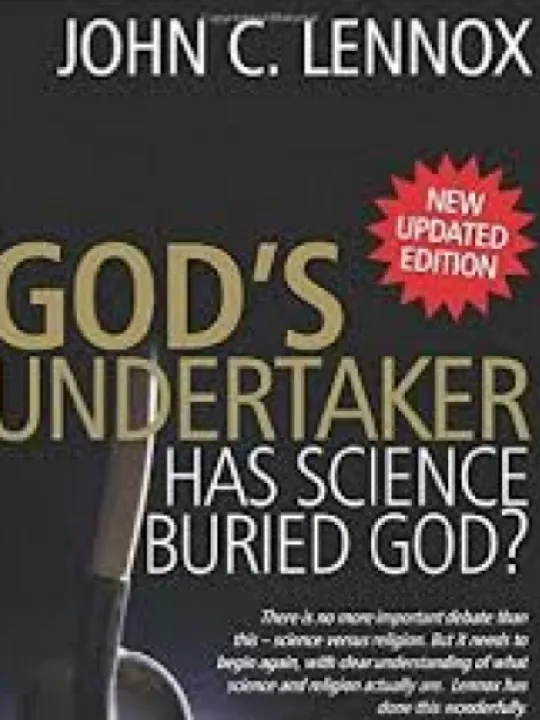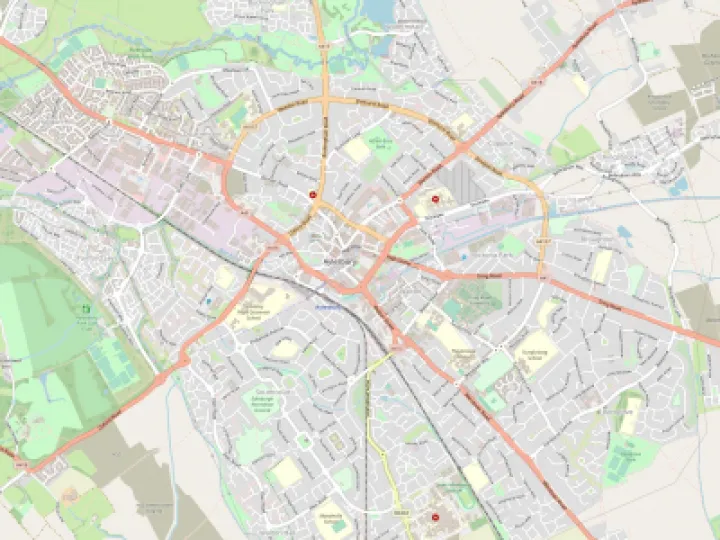God's Undertaker
We agreed that the answer to the sub-title of this book, 'Has science buried God?' is a resounding NO! Oxford mathematician and scientist John Lennox provides a catalogue of scientific facts and evidence from the vastness of the universe to the complexity of the smallest living cell that supports the hypothesis of a creator, designer, architect God. Lennox makes the case that there is a conflict not between science and religion but between atheism and theism. Whilst we are unlikely to ever have conclusive proof one way or the other, the science explained in Lennox's book certainly enhances, rather than diminishes the case for the existence of God.
However, opinion on the book was divided. Whilst some found it enjoyable, engrossing and exciting, there was a general difficulty with the detailed science and some mathematics. 'Heavy going' was the most common phrase. Some found the interaction of the Youtube video debates between Lennox and anti-religion atheist Richard Dawkins more enlightening than the book itself. Certainly, Lennox could never be accused of patronising his readers. To some though, it did feel like the distinguished Oxford professor that he is was talking to especially bright students. There were consequently lots of mentions of other people's work, about which few lay people would be sufficiently aware to fully appreciate some of his arguments. Also, because of the detail, some of his points were felt to be laboured. There was, however, general agreement and appreciation that the book provides lots of scientific facts and evidence to counteract the atheist views of Dawkins et al.
Whilst his evidence from the sciences was convincing, we felt it important to distinguish proven fact from personal belief when it came to some his references about the nature of God. There was some annoyance with his notion of the 'God of the good gaps' and the supernatural. This might alienate some people impressed by his science-based arguments.
Michele Challenger could not attend but sent the following comments which we all agreed was an excellent précis of the book. The only discord was on the evolution comments. We agreed with Lennox's notion of a proven 'micro-evolution' seen most easily in plant and animal breeding. However, on 'macro-evolution' of species evolving into other species, rather than claim that this is not proven, we can certainly say that evolutionists themselves are deeply divided.
Peter Green – Michele Challenger's comments follow:
John Lennox is a lifelong academic and therefore sets out the book according to academic procedure which is: First explain your premise, then set out your criteria and research methods and then provide your evidence and your conclusions. Moreover always give due credit to the thoughts and words of others whom you quote. This means that it is not until chapter 4 that the evidence starts to be set out but then it comes thick and fast. So the evidence is set out:
That the universe was not self assembled:
1. It is rationally intelligible – not random
2. Einstein noted the universe has order. Newton proved order cannot result from chaos – the arrow always goes from order to chaos and never the other way round.
3. The universe is governed by forces that determine expansion and contraction. A change in the ratio between these 2 forces by as little as 1:1055 would lead to a universe that cannot support galaxies.
4. The cosmological constants are absolutely precise. The probability that the universe was self made by random processes is zero.
That the first living cell was not self assembled:
1. Life needs carbon, carbon needs the nuclei of helium atoms to fuse, for this to happen the energy levels of the nuclei need to resonate with each other- a 1% difference in the resonance levels would mean the universe could not sustain life.
2. Earth's distance from the sun, its surface gravity and temperature are accurate within 2% of what is required for a life sustaining atmosphere. The planet must rotate at exactly the right speed and the moon must be exactly the right distance away.
3. The simplest living cell contains 100 million proteins. It cannot be reduced and still be a living cell. The proteins work in teams that fulfil complementary functions.
4. Each one of these proteins is made from at least 100 amino acids which must be in exactly the right place.
5. The order of the proteins is determined by DNA which is a non living molecule. It is a code of 3.5 billion characters and 2 metres long tightly coiled in every living cell.
6. There is no publication in the scientific literature that describes how molecules evolve into a biological system.
That species do not evolve into other species:
1. There is no paleontological evidence of species transforming into other species. All the fossil evidence is of creatures in stasis.
2. Evolution is an adaptive not a creative process. Random mutations result from what is already present.
3. It has been proved that a complex organism cannot be createdfrom a simpler one.
And so it goes on. Each paragraph provides another piece of evidence. And all this leads to the conclusion that mankind is special.
Get In Touch
Aylesbury Methodist Church & Centre
Buckingham Street
Aylesbury
Buckinghamshire
HP20 2NQ


